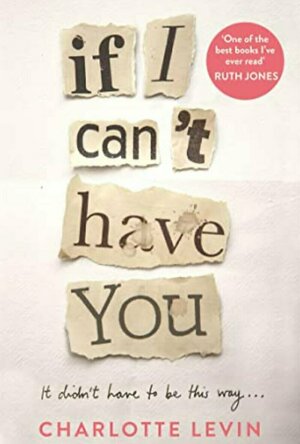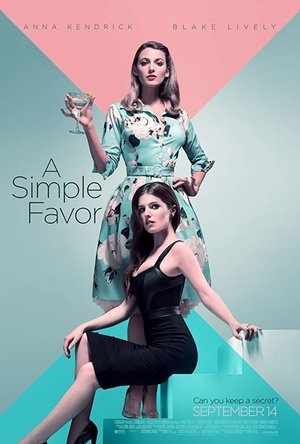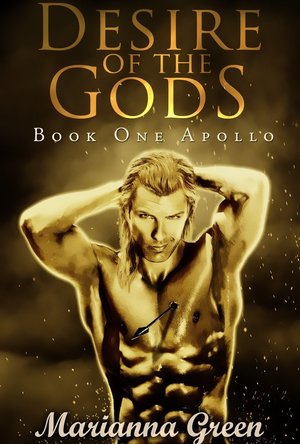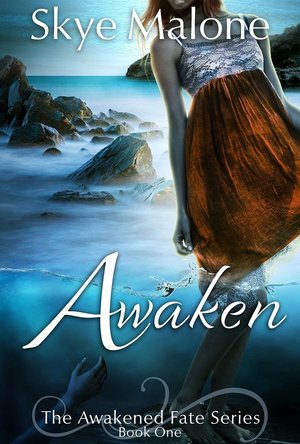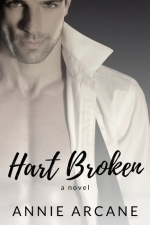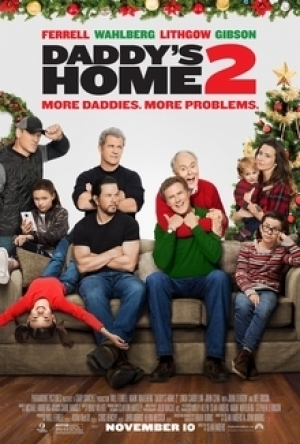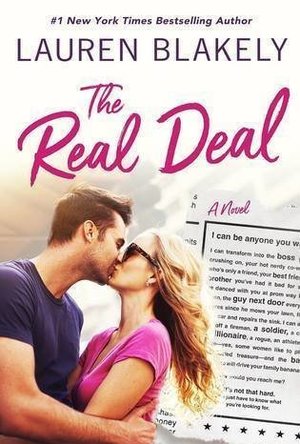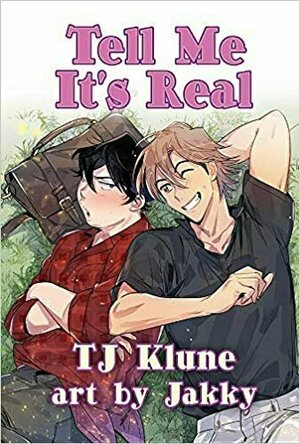Search
Search results
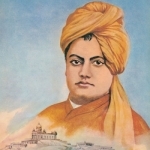
Vivekananda - Amar Chitra Katha Comics
Book and Entertainment
App
** Download our "India comics" App - ***Includes FREE ACK AND DIAMOND COMICS. link:...
ClareR (6062 KP) rated If I Can’t Have You in Books
Dec 5, 2020
If I Can’t Have You is a story about obsession. It’s funny, serious, disturbing and at times, outrageous. Constance could be a character that would be easy to dislike, but I liked her vulnerability. She is a sad character who has had a troubled upbringing. When she believes that she has found the love of her life, and is then almost immediately let down by the frankly despicable Dr. Samuel Stevens, I felt so sorry for her. And continued to feel for her as he repeatedly uses her. He clearly neither knows or cares about Constance’s depth of feeling for him. She seems desperate as she lets him use her, and even more so as she looks for affection with her housemate, Dale. He certainly seems to have the potential to be a male version of Constance, and it’s clear that she actually feels revulsion with regards to him. But at the same time, she doesn’t want to be on her own.
I think the character of Edward, an elderly man who lives over the road from Samuel, is in part the father figure that she needs and never had. He needs her too. I think things could have been far worse for Constance if she hadn’t have had Edward to consider. Edward is the device that shows Constance is a caring person underneath the obsession. She makes time in her day to care for and visit him. Like the other two men, he is a broken soul - but his obsessive behaviour doesn’t translate in to being careless with people. Instead he is a hoarder of strange knick-knacks. Edward adds an element of humour as well - his relationship with Constance is lovely.
I found it hard NOT to put myself in Constance’s shoes. After all, isn’t that what we as readers do with the characters we read about? How easy would i be to slip from loneliness in to obsession? I hope I never find out, but it’s so well portrayed in this book. This is a supremely uncomfortable book in parts - Constance is used and abused, and she in turn can have some pretty unpleasant thoughts. But perhaps that’s because she doesn’t have someone to really confide in?
I can’t actually believe that this is a debut, and I will definitely be looking out for whatever comes next from Charlotte Levin.
Many thanks to The Pigeonhole for serialising this and to Charlotte for joining in with the chat in the margins!
I think the character of Edward, an elderly man who lives over the road from Samuel, is in part the father figure that she needs and never had. He needs her too. I think things could have been far worse for Constance if she hadn’t have had Edward to consider. Edward is the device that shows Constance is a caring person underneath the obsession. She makes time in her day to care for and visit him. Like the other two men, he is a broken soul - but his obsessive behaviour doesn’t translate in to being careless with people. Instead he is a hoarder of strange knick-knacks. Edward adds an element of humour as well - his relationship with Constance is lovely.
I found it hard NOT to put myself in Constance’s shoes. After all, isn’t that what we as readers do with the characters we read about? How easy would i be to slip from loneliness in to obsession? I hope I never find out, but it’s so well portrayed in this book. This is a supremely uncomfortable book in parts - Constance is used and abused, and she in turn can have some pretty unpleasant thoughts. But perhaps that’s because she doesn’t have someone to really confide in?
I can’t actually believe that this is a debut, and I will definitely be looking out for whatever comes next from Charlotte Levin.
Many thanks to The Pigeonhole for serialising this and to Charlotte for joining in with the chat in the margins!
Emma @ The Movies (1786 KP) rated A Simple Favor (2018) in Movies
Sep 25, 2019
Fair warning, if you see this film you will want Blake Lively to be your lover by the end of the it.
There's no denying that this is an entertaining film. There's also no denying that it's predictable. Even without knowing the plot you can basically guess the way it's going to progress.
Blake Lively is amazing though. I honestly thought I'd never seen her in anything, but of course she's been in Green Lantern and Accepted. The latter being a favourite and the former... well, I thought Deadpool had taken care of that one for us... oh well. She does a great job of her role in this one. You can see her devious nature in the way she interacts with everyone and she really does improve the scenes she's in.
I love Anna Kendrick, she's funny and very talented but I wasn't overly keen on her character in this. While I understand that Stephanie takes a major character shift when she realises what has happened, I didn't enjoy the way they did that on the screen. There were some baby steps followed by some huge leaps. At one point I was convinced that they'd gone... "Anna Kendrick always sings... we should get some of that in there." I don't feel like it added anything to the film at all. I'd be interested to see how her character unfolds in the book.
The humour in it is entertaining but the side story of the other "mums" and particularly their inclusion in the summing up of the story feels out of place and more comedy than was right for this film.
Rating this one is tricky. Apart from those odd bits I didn't hate the film and none of it was badly dont... but I don't think I enjoyed it either. I took the evening to think it over and honestly I'm still not sure so therefore it's sitting at the three and a half mark. There's an outside possibility that I'll watch it again to see if I can figure it out, but I don't think it'll be any time soon unless I'm really at a loose end.
Based on the book A Simple Favour by Darcey Bell.
What should you do?
I personally wouldn't recommend watching this until it's streaming. But plenty of other people would disagree with me on that.
Movie thing you wish you could take home
Emily and Sean's house. Although I'm baffled as to why the kitchen is so small so I'd probably expand into the living room space.
There's no denying that this is an entertaining film. There's also no denying that it's predictable. Even without knowing the plot you can basically guess the way it's going to progress.
Blake Lively is amazing though. I honestly thought I'd never seen her in anything, but of course she's been in Green Lantern and Accepted. The latter being a favourite and the former... well, I thought Deadpool had taken care of that one for us... oh well. She does a great job of her role in this one. You can see her devious nature in the way she interacts with everyone and she really does improve the scenes she's in.
I love Anna Kendrick, she's funny and very talented but I wasn't overly keen on her character in this. While I understand that Stephanie takes a major character shift when she realises what has happened, I didn't enjoy the way they did that on the screen. There were some baby steps followed by some huge leaps. At one point I was convinced that they'd gone... "Anna Kendrick always sings... we should get some of that in there." I don't feel like it added anything to the film at all. I'd be interested to see how her character unfolds in the book.
The humour in it is entertaining but the side story of the other "mums" and particularly their inclusion in the summing up of the story feels out of place and more comedy than was right for this film.
Rating this one is tricky. Apart from those odd bits I didn't hate the film and none of it was badly dont... but I don't think I enjoyed it either. I took the evening to think it over and honestly I'm still not sure so therefore it's sitting at the three and a half mark. There's an outside possibility that I'll watch it again to see if I can figure it out, but I don't think it'll be any time soon unless I'm really at a loose end.
Based on the book A Simple Favour by Darcey Bell.
What should you do?
I personally wouldn't recommend watching this until it's streaming. But plenty of other people would disagree with me on that.
Movie thing you wish you could take home
Emily and Sean's house. Although I'm baffled as to why the kitchen is so small so I'd probably expand into the living room space.
Emma @ The Movies (1786 KP) rated Crazy Rich Asians (2018) in Movies
Sep 25, 2019
I was treated to this as an Unlimited Screening at Cineworld, mixing it up with a Saturday night viewing. Just a pre-warning, there is a very minor spoiler below, it's really more of a notice to watch out for something in the film, but if you want to avoid it then you can go over to Letterboxd (link can be found in the left hand menu) and read the review with that omitted.
We have been needing this film for quite some time. It is everything a classic rom-com should be and it feels like we haven't had one of this caliber in quite a while. It has all the ups and downs you want, the emotion and the humour, the serious and the down right ridiculous.
I did wonder if I would feel slightly more disconnected from the film because of the cultural differences... which at the time was mainly because I hadn't really heard much about the film... but the story is that eternal struggle of love that you can just connect with straight away.
The only reason this didn't get the fill five is because of the wacky Goh family. I'm not particularly a fan of Awkwafina or Ken Jeong's characters in it. While funny, I feel that their jokes/situations went on a bit too long taking it from funny to a little irritating.
Despite my issues with the way some of the characters went there's no denying that all of the cast did an amazing job. I particularly loved Gemma Chan as Astrid. The pinnacle of understated grace and kindness but with the side that no one sees apart from Rachel. Her performance was excellent a always and one of the most heartbreaking parts of the movie.
There are so many things to enjoy in this movie. I particularly liked the flashback at the beginning, so well done and really amusing. My second pick of highlights goes to a scene that I'm only partially sure happened. All the way through the film the audience and I seemed to be on the same wave length, laughing and reacting at the same time... but then... I laughed and no one else did. Was I the only one that saw it?! On the boat during the bachelor party when Bernard fires the rocket launcher... did no one else see that model go flying backwards?! Like seriously... why was no one else laughing??
What should you do?
You should definitely go and see this one. Great for a girls night out, and good for a date night too.
You should also probably read the book, it's the first in the Crazy Rich Asians trilogy by Kevin Kwan. Kwan was on board with the film so if the author approves you know you won't be finding massive differences between the two.
Movie thing you wish you could take home
Difficult to say what I'd want from this one. There were some lovely cars, but I think I'd still be happier with an Eleanor over any of these ones. It's probably got to be one of the lavish apartments with the stunning views instead.
We have been needing this film for quite some time. It is everything a classic rom-com should be and it feels like we haven't had one of this caliber in quite a while. It has all the ups and downs you want, the emotion and the humour, the serious and the down right ridiculous.
I did wonder if I would feel slightly more disconnected from the film because of the cultural differences... which at the time was mainly because I hadn't really heard much about the film... but the story is that eternal struggle of love that you can just connect with straight away.
The only reason this didn't get the fill five is because of the wacky Goh family. I'm not particularly a fan of Awkwafina or Ken Jeong's characters in it. While funny, I feel that their jokes/situations went on a bit too long taking it from funny to a little irritating.
Despite my issues with the way some of the characters went there's no denying that all of the cast did an amazing job. I particularly loved Gemma Chan as Astrid. The pinnacle of understated grace and kindness but with the side that no one sees apart from Rachel. Her performance was excellent a always and one of the most heartbreaking parts of the movie.
There are so many things to enjoy in this movie. I particularly liked the flashback at the beginning, so well done and really amusing. My second pick of highlights goes to a scene that I'm only partially sure happened. All the way through the film the audience and I seemed to be on the same wave length, laughing and reacting at the same time... but then... I laughed and no one else did. Was I the only one that saw it?! On the boat during the bachelor party when Bernard fires the rocket launcher... did no one else see that model go flying backwards?! Like seriously... why was no one else laughing??
What should you do?
You should definitely go and see this one. Great for a girls night out, and good for a date night too.
You should also probably read the book, it's the first in the Crazy Rich Asians trilogy by Kevin Kwan. Kwan was on board with the film so if the author approves you know you won't be finding massive differences between the two.
Movie thing you wish you could take home
Difficult to say what I'd want from this one. There were some lovely cars, but I think I'd still be happier with an Eleanor over any of these ones. It's probably got to be one of the lavish apartments with the stunning views instead.
Kara Skinner (332 KP) rated Desire of the Gods in Books
Jun 12, 2019
Taudry Statue Gets Woman Laid in Desire of the Gods
Contains spoilers, click to show
The last thing Paula needed was a blindfolded, glowing god in her bed, but that’s exactly what she got.
Still reeling from her fiance, Nick, breaking up with her, Paula is desperate to try anything to get him back. So when her neighbor, Mrs. Stephanopolos gives her a magic statue that will give Paula her heart’s desire, she’s skeptical but does the required ritual anyway.
A split second later, Apollo, the Greek god of the sun, is standing in her bedroom, ready to help Paula, even though he thinks Paula can do so much better than Nick.
Everything seems to be working out until Eros sneaks in and shoots one of his insta-love arrows at Apollo. Now the sun god needs to stay permanently blindfolded to avoid falling in love with the first woman he sees, especially when Paula is so not his type. Now Paula and Apollo are stuck with each other until Aphrodite can swoop in and reverse the spell. But with the two of them in such close proximity to each other, they might realize they’re each other’s types after all.
I definitely enjoyed this book. A lot of little details were explained, like the history of the statue and why she and Apollo can understand each other, despite them speaking different languages. And even though this book has a lot of my usual pet peeves, like insta-love, arrogance, and even lack of regard for personal boundaries, I still didn’t mind it. I think it’s easier to accept because Apollo is a god and things work differently for him. His love for Paula doesn’t have to be completely realistic because he’s not human.
However, the actual moment Apollo gets shot is incredibly anti-climactic.
Suddenly, the golden god flinched, and he slapped at the side of his neck as if stung by a mosquito.
“No – Oh No! Not again!” He shut his eyes tight.
“What’s the matter?” Paula stared at him.
“Eros,” groaned the god, keeping his eyes tight shut, “He’s fired on me.”
That’s it. It’s a significant event in the book but it’s as dramatic as a mosquito bite. You don’t even meet Eros in this book. But aside from that unsatisfying scene, this was an excellent story.
I really liked Paula as a character. She’s a bit of a smartass and despite being insecure with her looks, she’s not whiny or obsessive about it. Even though she needs to go along with Apollo’s absurdity to get her heart’s desire, she stays snarky instead of being resigned to taking his (unintentionally) hurtful comments about her appearance. The only thing I didn’t really like about her was her attachment to Nick. I get the fact that he was her fiance and she’s in love with him, but it got a little repetitive, even in this novella-length story. It was especially bad when Nick saw her with Apollo, jumped to conclusions, and called her a slut for moving on so quickly, even though he left her for another woman.
However, for the most part, Paula rocked.
Apollo is so absurd, he’s adorable. Normally, arrogance turns me off, but Apollo is so over the top, it’s impossible to take him seriously.
“Turn away from me, and try not to think of my wonderfully developed upper arms or what you moderns call my six pack”
It’s just so silly that it’s funny. And Apollo genuinely does care for Paula. He warned her away from Nick from the start, telling her she could do better. He also offered to strike Nick dead for her and was in general very protective of her (but not in a controlling way).
His lack of personal boundaries bothers me slightly. He has no concept of personal space and has no problem touching Paula randomly and without warning. When sleeping in her bed, he used her breasts for a pillow, and while sleeping he dry-humped her.
While this sort of behavior would usually bother me a lot, I don’t really mind it because it’s pretty clear he’s not doing it to exert power over her or because he thinks he owns her. He’s just pretty oblivious to how the world works. (The second book in this trilogy explains that the gods are all immature and careless like this because they do not have the ability to change and grow like humans do.)
However, I really liked him for the most part. He’s really sweet in general and has a great dynamic with Paula.
Still reeling from her fiance, Nick, breaking up with her, Paula is desperate to try anything to get him back. So when her neighbor, Mrs. Stephanopolos gives her a magic statue that will give Paula her heart’s desire, she’s skeptical but does the required ritual anyway.
A split second later, Apollo, the Greek god of the sun, is standing in her bedroom, ready to help Paula, even though he thinks Paula can do so much better than Nick.
Everything seems to be working out until Eros sneaks in and shoots one of his insta-love arrows at Apollo. Now the sun god needs to stay permanently blindfolded to avoid falling in love with the first woman he sees, especially when Paula is so not his type. Now Paula and Apollo are stuck with each other until Aphrodite can swoop in and reverse the spell. But with the two of them in such close proximity to each other, they might realize they’re each other’s types after all.
I definitely enjoyed this book. A lot of little details were explained, like the history of the statue and why she and Apollo can understand each other, despite them speaking different languages. And even though this book has a lot of my usual pet peeves, like insta-love, arrogance, and even lack of regard for personal boundaries, I still didn’t mind it. I think it’s easier to accept because Apollo is a god and things work differently for him. His love for Paula doesn’t have to be completely realistic because he’s not human.
However, the actual moment Apollo gets shot is incredibly anti-climactic.
Suddenly, the golden god flinched, and he slapped at the side of his neck as if stung by a mosquito.
“No – Oh No! Not again!” He shut his eyes tight.
“What’s the matter?” Paula stared at him.
“Eros,” groaned the god, keeping his eyes tight shut, “He’s fired on me.”
That’s it. It’s a significant event in the book but it’s as dramatic as a mosquito bite. You don’t even meet Eros in this book. But aside from that unsatisfying scene, this was an excellent story.
I really liked Paula as a character. She’s a bit of a smartass and despite being insecure with her looks, she’s not whiny or obsessive about it. Even though she needs to go along with Apollo’s absurdity to get her heart’s desire, she stays snarky instead of being resigned to taking his (unintentionally) hurtful comments about her appearance. The only thing I didn’t really like about her was her attachment to Nick. I get the fact that he was her fiance and she’s in love with him, but it got a little repetitive, even in this novella-length story. It was especially bad when Nick saw her with Apollo, jumped to conclusions, and called her a slut for moving on so quickly, even though he left her for another woman.
However, for the most part, Paula rocked.
Apollo is so absurd, he’s adorable. Normally, arrogance turns me off, but Apollo is so over the top, it’s impossible to take him seriously.
“Turn away from me, and try not to think of my wonderfully developed upper arms or what you moderns call my six pack”
It’s just so silly that it’s funny. And Apollo genuinely does care for Paula. He warned her away from Nick from the start, telling her she could do better. He also offered to strike Nick dead for her and was in general very protective of her (but not in a controlling way).
His lack of personal boundaries bothers me slightly. He has no concept of personal space and has no problem touching Paula randomly and without warning. When sleeping in her bed, he used her breasts for a pillow, and while sleeping he dry-humped her.
While this sort of behavior would usually bother me a lot, I don’t really mind it because it’s pretty clear he’s not doing it to exert power over her or because he thinks he owns her. He’s just pretty oblivious to how the world works. (The second book in this trilogy explains that the gods are all immature and careless like this because they do not have the ability to change and grow like humans do.)
However, I really liked him for the most part. He’s really sweet in general and has a great dynamic with Paula.
Sophia (Bookwyrming Thoughts) (530 KP) rated Awaken (Awakened Fate #1) in Books
Jan 23, 2020
Awaken is the first book in the Awakened Fate series by Skye Malone, and I'm pretty familiar with her other series as Megan Joel Peterson (The Children and the Blood trilogy) that I was confident her latest book will go into my good graces pretty easily. Thing is, Awaken reminded me so much of The Little Mermaid, I can't help but have the urge to sing "Under the Sea" and ask one question:
<b>"Sebastian, Sebastian, where art thou?"</b>
I had also associated funny brow movements with the author in particular. As in, brows drawing down, which I still don't know how that works without your brows looking like a seesaw or ending up with a pouting pucker fish face.
But back to The Little Mermaid similarities... and not brow movements.
Chloe has red hair, or as the book describes, auburn. But auburn's technically red with a tinge of brown. Ariel has red hair. The difference? Chloe doesn't know how to swim, and has been living on land her entire life. Then there's Zeke, which I sort of predicted him to have dark hair, and he does! Just like the princey dude for whom I've forgotten the name. In fact, said unknown princeling stalks Ariel, and so does Zeke... due to curiosity on who the pretty girl is. It's not revealed in Awaken, but I won't be surprised if Zeke is a prince.
<blockquote>Despite the fact we were barely any distance from the shore, the temperature had dropped to levels ordinarily found in places even deeper than Nyciena, with darkness to match.</blockquote>
Every book has got to have an Ursula of some sort. And she just oozes darkness, doesn't she? Too bad the Ursulas here aren't Octopuses. ;)
<blockquote>The girl changed the ocean when she was near it – a statement that on any level should have been impossible.</blockquote>
Okay, here's Sophia Lin logic: See, Ariel has a curse. I was sort of assuming Chloe willingly turned into a human just like Ariel, but she doesn't lose her voice, right? Except, here's the curse: she changes the ocean... and it's not exactly a pleasant way. Technically, that logic isn't going to get you far, because it isn't true, and I can't reveal the actual answer without spoiling anything. Nor do I want to reveal anything, because answers are spoilers, and not everyone can be trusted with the trusty little spoiler button. ;)
Then there are the differences, which pretty much revamps The Little Mermaid. Enough commentary on Little Mermaid.
Awaken follows two views – Chloe and Zeke. The best part of those two views though? They balance each other out pretty well. Chloe doesn't really know anything about what she is, so we're basically following a naïve character for most of the story who has strange things happening to her and strange peeps with glowing eyes wanting to murder the likes of her. Very boring in my opinion, because she doesn't know what's going on and it's all confusing and she's stuck in the hospital every once in awhile from an unfortunate encounter with said strange flowing peepy eyes. Zeke balances her out because he pretty much knows what's going on from his observations – but he doesn't really know what Chloe is until the end either.
Let's just say that balance is a good thing. Because I just can't handle an utterly boring character, and I'm sure not everyone likes that either. But if there's one thing Chloe has that makes her an interesting character, it's her voice and her frustration on why her parents hate the ocean with a passion and come up with logical, but weird excuses for them.
The only problem I probably have is how some of the terms don't appear in the pronunciation guide, and how the long ones are confusing. Maybe my head just needs to wrap around them after reading Irish terms from the second book in the Danaan Trilogy. O_o
Awaken is a good start to the Awakened Fate series, and while we spend most of the time above the surface, it's hinted that the sequel will most likely be focused underwater. It's a quick read for those who enjoy reading stories related to <s>merps</s> merpeople.
------------------
original rating: 4.5 out of 5
Original review posted at <a href="http://bookwyrming-thoughts.blogspot.com/2014/08/review-awaken-by-skye-malone.html">Bookwyrming Thoughts</a>
<a href="http://bookwyrming-thoughts.blogspot.com/"><img src="http://3.bp.blogspot.com/-cG5gfBqJVzk/VA5BIojjZ9I/AAAAAAAAD1g/7srLUfpAGEU/s1600/banner.png"; /></a>
<b>"Sebastian, Sebastian, where art thou?"</b>
I had also associated funny brow movements with the author in particular. As in, brows drawing down, which I still don't know how that works without your brows looking like a seesaw or ending up with a pouting pucker fish face.
But back to The Little Mermaid similarities... and not brow movements.
Chloe has red hair, or as the book describes, auburn. But auburn's technically red with a tinge of brown. Ariel has red hair. The difference? Chloe doesn't know how to swim, and has been living on land her entire life. Then there's Zeke, which I sort of predicted him to have dark hair, and he does! Just like the princey dude for whom I've forgotten the name. In fact, said unknown princeling stalks Ariel, and so does Zeke... due to curiosity on who the pretty girl is. It's not revealed in Awaken, but I won't be surprised if Zeke is a prince.
<blockquote>Despite the fact we were barely any distance from the shore, the temperature had dropped to levels ordinarily found in places even deeper than Nyciena, with darkness to match.</blockquote>
Every book has got to have an Ursula of some sort. And she just oozes darkness, doesn't she? Too bad the Ursulas here aren't Octopuses. ;)
<blockquote>The girl changed the ocean when she was near it – a statement that on any level should have been impossible.</blockquote>
Okay, here's Sophia Lin logic: See, Ariel has a curse. I was sort of assuming Chloe willingly turned into a human just like Ariel, but she doesn't lose her voice, right? Except, here's the curse: she changes the ocean... and it's not exactly a pleasant way. Technically, that logic isn't going to get you far, because it isn't true, and I can't reveal the actual answer without spoiling anything. Nor do I want to reveal anything, because answers are spoilers, and not everyone can be trusted with the trusty little spoiler button. ;)
Then there are the differences, which pretty much revamps The Little Mermaid. Enough commentary on Little Mermaid.
Awaken follows two views – Chloe and Zeke. The best part of those two views though? They balance each other out pretty well. Chloe doesn't really know anything about what she is, so we're basically following a naïve character for most of the story who has strange things happening to her and strange peeps with glowing eyes wanting to murder the likes of her. Very boring in my opinion, because she doesn't know what's going on and it's all confusing and she's stuck in the hospital every once in awhile from an unfortunate encounter with said strange flowing peepy eyes. Zeke balances her out because he pretty much knows what's going on from his observations – but he doesn't really know what Chloe is until the end either.
Let's just say that balance is a good thing. Because I just can't handle an utterly boring character, and I'm sure not everyone likes that either. But if there's one thing Chloe has that makes her an interesting character, it's her voice and her frustration on why her parents hate the ocean with a passion and come up with logical, but weird excuses for them.
The only problem I probably have is how some of the terms don't appear in the pronunciation guide, and how the long ones are confusing. Maybe my head just needs to wrap around them after reading Irish terms from the second book in the Danaan Trilogy. O_o
Awaken is a good start to the Awakened Fate series, and while we spend most of the time above the surface, it's hinted that the sequel will most likely be focused underwater. It's a quick read for those who enjoy reading stories related to <s>merps</s> merpeople.
------------------
original rating: 4.5 out of 5
Original review posted at <a href="http://bookwyrming-thoughts.blogspot.com/2014/08/review-awaken-by-skye-malone.html">Bookwyrming Thoughts</a>
<a href="http://bookwyrming-thoughts.blogspot.com/"><img src="http://3.bp.blogspot.com/-cG5gfBqJVzk/VA5BIojjZ9I/AAAAAAAAD1g/7srLUfpAGEU/s1600/banner.png"; /></a>
Kara Skinner (332 KP) rated Hart Broken (Cale & Mickey #1) in Books
Sep 10, 2019
Genre: Contemporary
Goodreads Rating: 4.75/5 stars
My rating: 4/5 stars
Mickey Hart doesn’t do one-night stands. Until she wakes up in a luxury penthouse. With nothing but a t-shirt. And no idea who it belongs to.
Enter Cale Windermere. Driven. Ambitious. Successful. And so gorgeous he could’ve walked straight out of a romance novel…
Except he can’t walk. Not that it ever stops him from getting what he wants. And he wants Mickey. Even if she’s keeping secrets from him.
This book…
Where do I even begin? It has a strong start and it stays strong. Mickey is awkward and funny. She starts out at the perfect chick lit character.
“Cale Windermere,” he said, sticking out his hand.
“C-Cale?”
“Yeah. Like the leafy green, just take off the K and replace with a C.”
Oh. My. God.
“And you are?”
“Uh…”
Cale raised an eyebrow, chuckling lightly.
Say something, Mickey.
“I-l’m, uh…”
Something intelligent. And preferably English.
With the help of a mental slap, Mickey willed herself to take his hand and shake it, a bit too eagerly. “I-I’m Mickey.”
It’s difficult not to like her. I like even more that she doesn’t really care Cale’s in a wheelchair and she doesn’t do anything stupid and awkward like kneel down so they’re eye level or act as if he’s an invalid. Even though she does notice the wheelchair, she is easily distracted by how attractive he is.
Carefully taking a sip, Mickey did a once over of the man sitting in front of her. Cale’s shirt was just fitted enough to show off the remarkably solid build of his upper torso. She jotted down a mental list of all his attractive attributes thus far.
Thick, unruly chocolate locks. Gorgeous emerald eyes. Award-winning smile.
And he had a long list of greats.
Great back. Great shoulders. Great chest. Great arms.
Really great arms.
She ran her nails over the hot ceramic.
You’d never think that something was wrong with him.
She wondered if he had great abs too.
So I love Mickey. And the farther I got into the book, the more complex she became. I found myself really wanting to know why she was so commitment shy and found it difficult to sleep in the same bed as someone.
I love Cale a lot too, although not as much as Mickey. He’s charismatic, sexy, and very much in love with Mickey. He’s everything you’d expect in a love interest. So much so, he’s a bit of a cliche. Just because he can’t walk doesn’t mean he’s not a stereotypical billionaire love interest.
Cale gets self-conscious about his disability at times, and he has a lot of emotional baggage from that and his ex wife. But he’s pretty easy to get, and I don’t feel the same complexity with him I do with Mickey. That being said, he does have flaws, and I love that. He gets mad at Mickey and fed up with her unwillingness to share.
“Essentially, you’re more than happy to fuck my brains out but you won’t stay by my side. How am I doing so far, Mickey?”
“Cale…”
“So I understand, okay? Well, I wouldn’t exactly call it understanding,” he corrected himself wryly. “But I get it. I get that you need your space. It didn’t take a fucking genius to figure that one out. And I’ve tried my best to respect that…”
True.
“And be patient…”
True.
“And understanding.”
All painfully true.
He suddenly looked exhausted. And he suddenly sounded exhausted, “But Jesus, Mickey.” Shaking his head slowly, Cale blew the hair out of his eyes and sighed, “You need to throw a guy a bone eventually.”
Gotta love that he’s human and isn’t an eternal patience machine. So Cale’s all right. However, the chapters from his point of view are really weird.
They’re short, in first person, and melodramatic. A lot of the time the reader doesn’t get to see where he is or what he’s doing. Instead, they just hear his internal thoughts about Mickey. That’s it. And they’re melodramatic and repetitive, especially in the beginning of the book. The farther into the book, the more fleshed out the chapters get. But a full star is knocked off for those earlier chapters.
Despite that, I definitely recommend reading this book. It’s darker than most contemporary romances, which is very refreshing, but it has plenty of light and hilarious moments. Definitely worth the read.
If you liked this review, or know someone who might like Hart Broken, then I’d definitely appreciate it if you shared this post with your friends. Thank you, and have a great day!
Goodreads Rating: 4.75/5 stars
My rating: 4/5 stars
Mickey Hart doesn’t do one-night stands. Until she wakes up in a luxury penthouse. With nothing but a t-shirt. And no idea who it belongs to.
Enter Cale Windermere. Driven. Ambitious. Successful. And so gorgeous he could’ve walked straight out of a romance novel…
Except he can’t walk. Not that it ever stops him from getting what he wants. And he wants Mickey. Even if she’s keeping secrets from him.
This book…
Where do I even begin? It has a strong start and it stays strong. Mickey is awkward and funny. She starts out at the perfect chick lit character.
“Cale Windermere,” he said, sticking out his hand.
“C-Cale?”
“Yeah. Like the leafy green, just take off the K and replace with a C.”
Oh. My. God.
“And you are?”
“Uh…”
Cale raised an eyebrow, chuckling lightly.
Say something, Mickey.
“I-l’m, uh…”
Something intelligent. And preferably English.
With the help of a mental slap, Mickey willed herself to take his hand and shake it, a bit too eagerly. “I-I’m Mickey.”
It’s difficult not to like her. I like even more that she doesn’t really care Cale’s in a wheelchair and she doesn’t do anything stupid and awkward like kneel down so they’re eye level or act as if he’s an invalid. Even though she does notice the wheelchair, she is easily distracted by how attractive he is.
Carefully taking a sip, Mickey did a once over of the man sitting in front of her. Cale’s shirt was just fitted enough to show off the remarkably solid build of his upper torso. She jotted down a mental list of all his attractive attributes thus far.
Thick, unruly chocolate locks. Gorgeous emerald eyes. Award-winning smile.
And he had a long list of greats.
Great back. Great shoulders. Great chest. Great arms.
Really great arms.
She ran her nails over the hot ceramic.
You’d never think that something was wrong with him.
She wondered if he had great abs too.
So I love Mickey. And the farther I got into the book, the more complex she became. I found myself really wanting to know why she was so commitment shy and found it difficult to sleep in the same bed as someone.
I love Cale a lot too, although not as much as Mickey. He’s charismatic, sexy, and very much in love with Mickey. He’s everything you’d expect in a love interest. So much so, he’s a bit of a cliche. Just because he can’t walk doesn’t mean he’s not a stereotypical billionaire love interest.
Cale gets self-conscious about his disability at times, and he has a lot of emotional baggage from that and his ex wife. But he’s pretty easy to get, and I don’t feel the same complexity with him I do with Mickey. That being said, he does have flaws, and I love that. He gets mad at Mickey and fed up with her unwillingness to share.
“Essentially, you’re more than happy to fuck my brains out but you won’t stay by my side. How am I doing so far, Mickey?”
“Cale…”
“So I understand, okay? Well, I wouldn’t exactly call it understanding,” he corrected himself wryly. “But I get it. I get that you need your space. It didn’t take a fucking genius to figure that one out. And I’ve tried my best to respect that…”
True.
“And be patient…”
True.
“And understanding.”
All painfully true.
He suddenly looked exhausted. And he suddenly sounded exhausted, “But Jesus, Mickey.” Shaking his head slowly, Cale blew the hair out of his eyes and sighed, “You need to throw a guy a bone eventually.”
Gotta love that he’s human and isn’t an eternal patience machine. So Cale’s all right. However, the chapters from his point of view are really weird.
They’re short, in first person, and melodramatic. A lot of the time the reader doesn’t get to see where he is or what he’s doing. Instead, they just hear his internal thoughts about Mickey. That’s it. And they’re melodramatic and repetitive, especially in the beginning of the book. The farther into the book, the more fleshed out the chapters get. But a full star is knocked off for those earlier chapters.
Despite that, I definitely recommend reading this book. It’s darker than most contemporary romances, which is very refreshing, but it has plenty of light and hilarious moments. Definitely worth the read.
If you liked this review, or know someone who might like Hart Broken, then I’d definitely appreciate it if you shared this post with your friends. Thank you, and have a great day!
Lee (2222 KP) rated Daddy's Home 2 (2017) in Movies
Dec 8, 2017
Starts off great but soon veers off into not so great territory.
This year hasn't been good for the comedy movie genre. Will Ferrell in particular managed to star in one of the worst 'comedy' movies I've seen in a long time with 'The House' and even the anticipated sequel to one of the better comedies in recent years, Bad Moms, turned out to be a complete dud. So when a similar, Christmas themed sequel to what was essentially one of the more average movies in recent years came along, my hopes weren't exactly high. The original Daddys Home coasted along on the likeable pairing of Will Ferrell and Mark Wahlberg but did feature a handful of funny elements, obviously enough to greenlight a sequel.
As mentioned previously, Daddys Home 2 is set at Christmas time. Brad and Dusty (Ferrell and Wahlberg) have worked out their differences from the first movie and are getting along just fine as 'co-dads' to the kids. When their own dads (Mel Gibson and John Lithgow) pay a visit, they decide to have a 'together' family Christmas, and Kurt (Gibson) even manages to book a luxury cabin in the snow for them to enjoy it all in. It's a bit of a whirlwind setup, but for a while it all works surprisingly well. I found myself really laughing at some scenes, it was like watching a classic Christmas family disaster along the lines of National Lampoons Christmas Vacation.
But sadly, the momentum soon drops. Scene after scene fails to hit home, and some scenes even leave you wondering what the hell they were thinking by including them in the movie in the first place. Mel Gibsons character becomes increasingly annoying and it's all just a bit of a shame really. Things manage to get back on track towards the end of the movie but it's disappointing that it doesn't retain the high level of laughs and entertainment that kicked off the first third or so.
As mentioned previously, Daddys Home 2 is set at Christmas time. Brad and Dusty (Ferrell and Wahlberg) have worked out their differences from the first movie and are getting along just fine as 'co-dads' to the kids. When their own dads (Mel Gibson and John Lithgow) pay a visit, they decide to have a 'together' family Christmas, and Kurt (Gibson) even manages to book a luxury cabin in the snow for them to enjoy it all in. It's a bit of a whirlwind setup, but for a while it all works surprisingly well. I found myself really laughing at some scenes, it was like watching a classic Christmas family disaster along the lines of National Lampoons Christmas Vacation.
But sadly, the momentum soon drops. Scene after scene fails to hit home, and some scenes even leave you wondering what the hell they were thinking by including them in the movie in the first place. Mel Gibsons character becomes increasingly annoying and it's all just a bit of a shame really. Things manage to get back on track towards the end of the movie but it's disappointing that it doesn't retain the high level of laughs and entertainment that kicked off the first third or so.
Alicia S (193 KP) rated The Real Deal: A Novel in Books
Sep 28, 2018
Lauren Blakely has done it again!
Lauren Blakely has done it again! What an incredibly sweet and charming love story about two people who find that pretending can sometimes be just as exciting as the real thing! Imagine a reversed Pretty Woman story...
In preparation of going home to see the family in Connecticut, April has decided that hiring a pretend boyfriend to keep the family off her back is the next best thing after her bestie stand-in has to bail for a job. Tired of being set-up with every guy her family comes across, all in hopes of leading her back to her hometown and everything she is not interested in... she heads to the family reunion with her Craigslist hired boyfriend on her arm and a great backstory.
Turns out, Theo is perfection from the moment they meet. Ready to create any story she requires, it's obvious the sparks fly immediately with these two. Creating fun backstories that feel all too real for a couple that met only a few days ago.
Can't forget the family aspect here... some people have family and never see how wonderful they are and never know how good they have it. Some have no family and only dream of being "harassed" by those who love you and it was beyond heartwarming to watch such a loving group of people together. April clearly has a wonderful family and they so lovingly welcome Theo and his family into theirs.
So heartwarming, this book brought a smile to my face over and over. Didn't want to put it down yet I didn't want it to end!? Such wonderful characters, I loved April's strength, and determination and listening to the two of them together was beyond adorable. Loved that she was so quick, funny and smart and he was just a sweetheart, afraid of his past, afraid of letting her down, afraid this would never be more than a fake weekend... boy was he wrong!? ;-) Highly recommended read and author!!
In preparation of going home to see the family in Connecticut, April has decided that hiring a pretend boyfriend to keep the family off her back is the next best thing after her bestie stand-in has to bail for a job. Tired of being set-up with every guy her family comes across, all in hopes of leading her back to her hometown and everything she is not interested in... she heads to the family reunion with her Craigslist hired boyfriend on her arm and a great backstory.
Turns out, Theo is perfection from the moment they meet. Ready to create any story she requires, it's obvious the sparks fly immediately with these two. Creating fun backstories that feel all too real for a couple that met only a few days ago.
Can't forget the family aspect here... some people have family and never see how wonderful they are and never know how good they have it. Some have no family and only dream of being "harassed" by those who love you and it was beyond heartwarming to watch such a loving group of people together. April clearly has a wonderful family and they so lovingly welcome Theo and his family into theirs.
So heartwarming, this book brought a smile to my face over and over. Didn't want to put it down yet I didn't want it to end!? Such wonderful characters, I loved April's strength, and determination and listening to the two of them together was beyond adorable. Loved that she was so quick, funny and smart and he was just a sweetheart, afraid of his past, afraid of letting her down, afraid this would never be more than a fake weekend... boy was he wrong!? ;-) Highly recommended read and author!!
Leanne Crabtree (480 KP) rated Tell Me It's Real (At First Sight, #1) in Books
Nov 18, 2019
Well, right from the start this had me laughing as Paul introduced himself. It was very frank and pretty much laugh-out-loud at times. He doesn't have the best opinion of himself, bless him, but he's so fun. And then he meets eyes with Vince while out at his friends drag queen performance at a bar/club and things go from there. Vince is not backing down about his intentions to date Paul, while Paul cannot believe that this younger, attractive, really nice if slightly dumb man, wants him and fights it tooth and nail.
They have a text conversation about a third of the way through the book that almost had me laughing like an idiot. The text faces that Vince was sending Paul were frigging hilarious. The Sex Face one is going to stick with me for a long time: >_<
And let's not forget Paul's parents. Oh. My. God! They are so funny it's not fair. I almost had tears streaming down my face at one point. They all go to nan's house for a meal and ignoring Johnny Depp, the homophobic parrot, they get into a conversation about how they met and it's stuff like this that has me crying with laughter at times. Vince, bless him. Not the smartest but he's a real sweetheart.
"He was choking to death in a restaurant," Vince explained
"I was not!" I said.
"On like a burrito or something."
"It was spinach."
"Anyway, he would have died had I not done the haemorrhoid manoeuvre."
"Heimlich. It's Heimlich."
There were so many conversations like this, with some crazy stuff being discussed and I LOVED it! They were such a cute couple and they gelled so well. It was so obvious they truly needed each other at the time that they found each other. Paul needed to let himself be loved and Vince needed someone to be there for him after a family issue. It was amazing!
I'm going to be keeping my eye out for other books in this series.
They have a text conversation about a third of the way through the book that almost had me laughing like an idiot. The text faces that Vince was sending Paul were frigging hilarious. The Sex Face one is going to stick with me for a long time: >_<
And let's not forget Paul's parents. Oh. My. God! They are so funny it's not fair. I almost had tears streaming down my face at one point. They all go to nan's house for a meal and ignoring Johnny Depp, the homophobic parrot, they get into a conversation about how they met and it's stuff like this that has me crying with laughter at times. Vince, bless him. Not the smartest but he's a real sweetheart.
"He was choking to death in a restaurant," Vince explained
"I was not!" I said.
"On like a burrito or something."
"It was spinach."
"Anyway, he would have died had I not done the haemorrhoid manoeuvre."
"Heimlich. It's Heimlich."
There were so many conversations like this, with some crazy stuff being discussed and I LOVED it! They were such a cute couple and they gelled so well. It was so obvious they truly needed each other at the time that they found each other. Paul needed to let himself be loved and Vince needed someone to be there for him after a family issue. It was amazing!
I'm going to be keeping my eye out for other books in this series.
